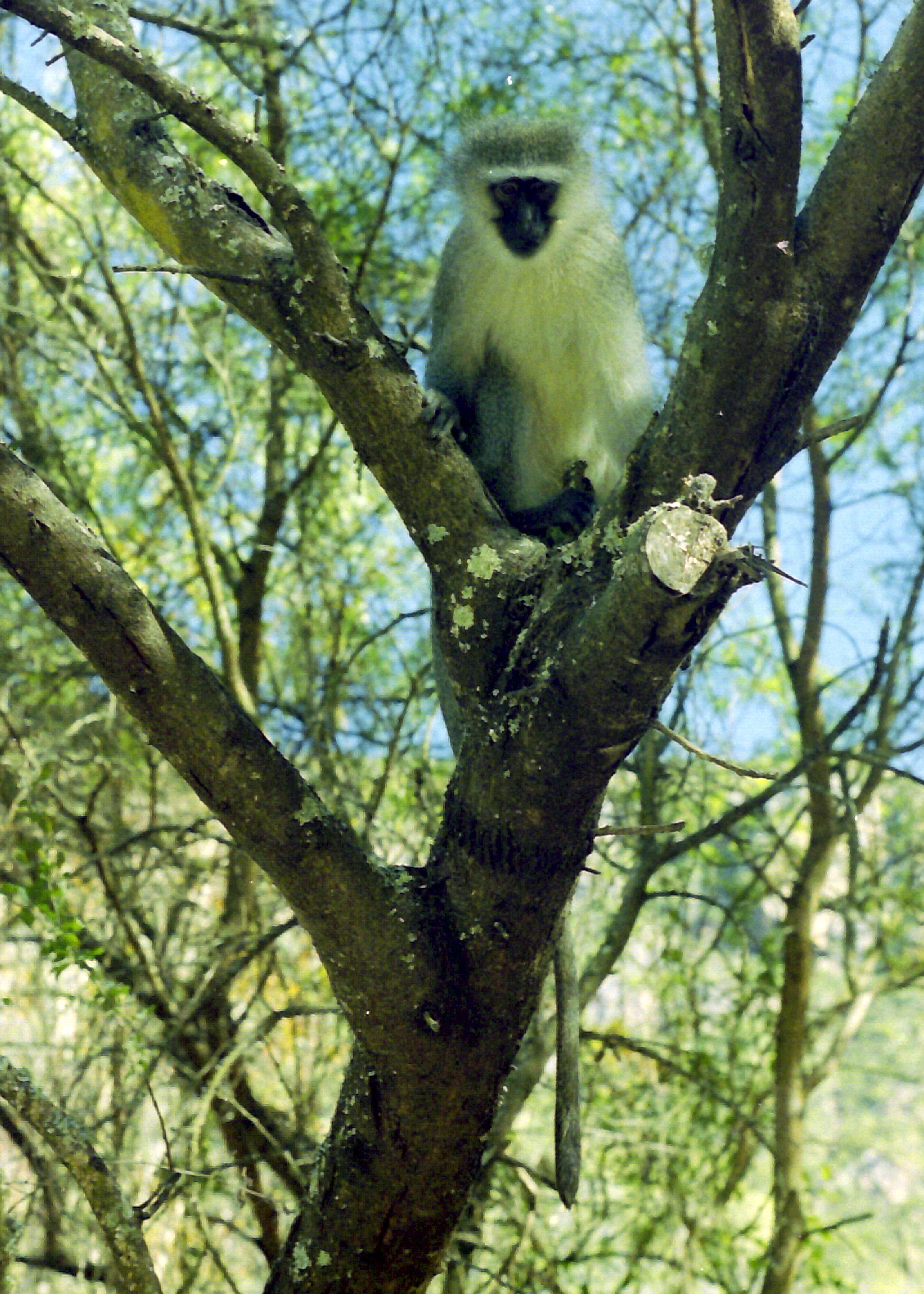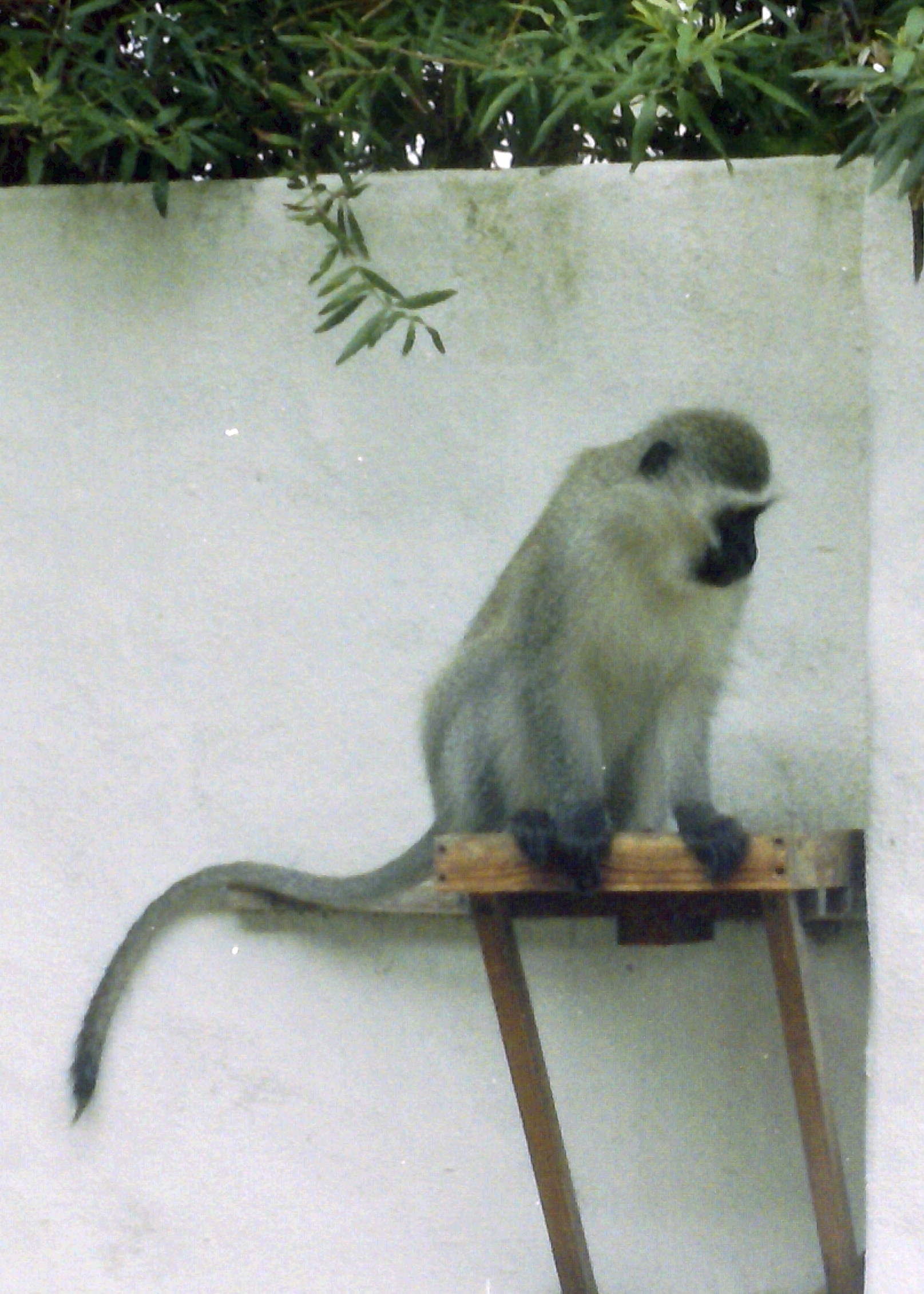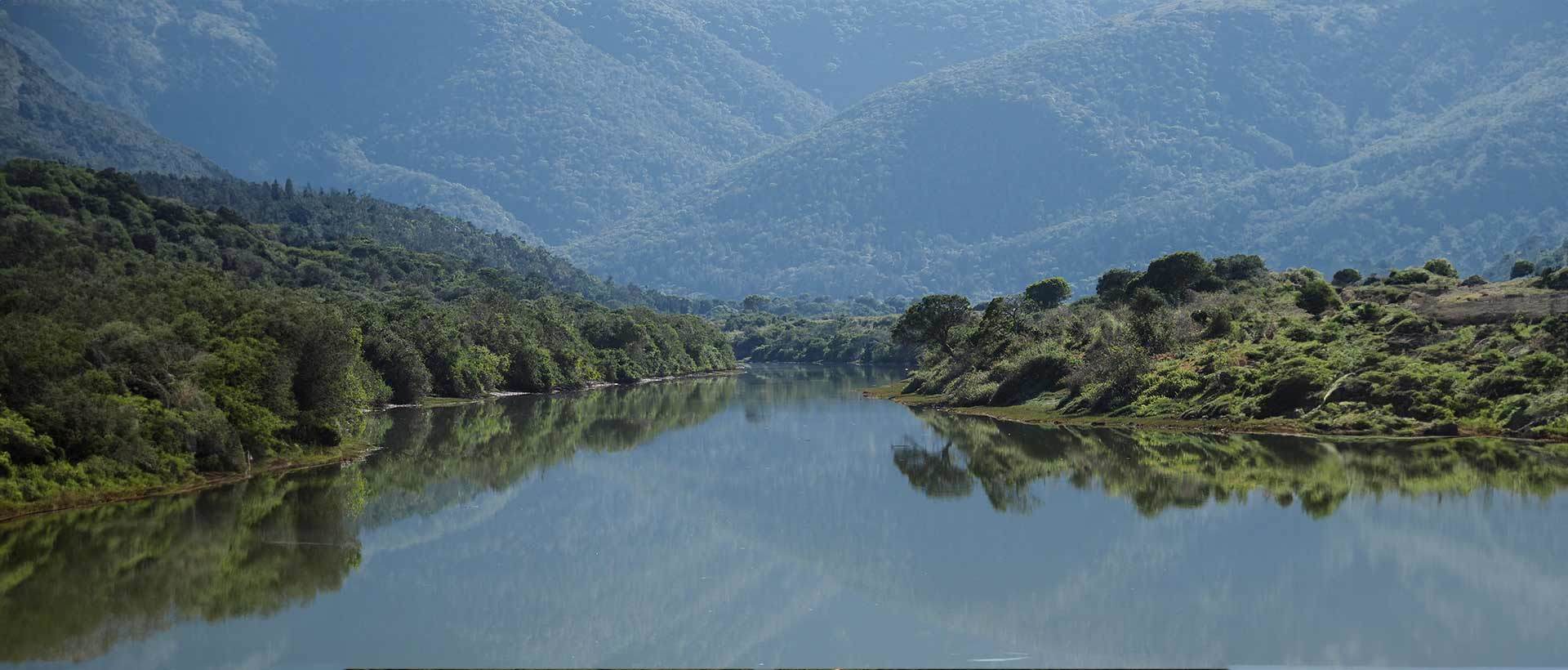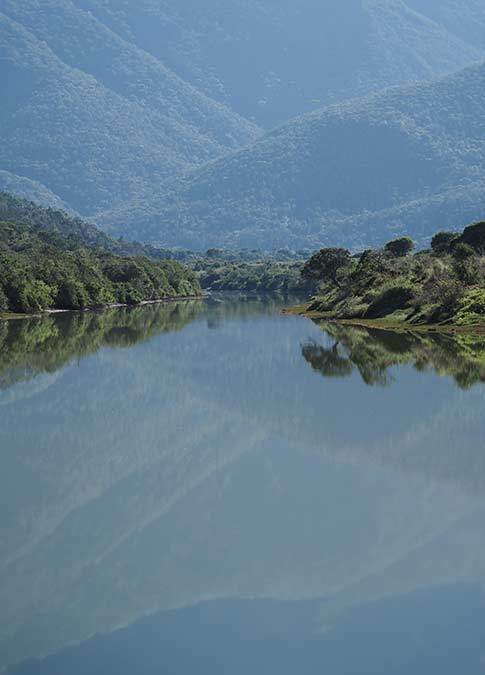Monkey Business
Making our way around the massive grey trunk of a Cape Fig* we startled a small troop of Vervet monkeys. They scattered into the surrounding trees and viewed us suspiciously from amongst the leaves. Eventually, realizing that we posed no threat, they descended once again to the clearing that lay beyond the fig tree and resumed their foraging.
These sociable, graceful and attractive monkeys are to be found in many a South African game reserve, and indeed also elsewhere. They live in smallish groups consisting typically of a large, senior male who acts as leader, and a number of lesser males, females and juveniles. Apart from the furious screams of a female being chased by too ardent a suitor, they seem to live peaceably enough together. The handsome males stalk through the veld with calm assurance, the females are attentive mothers, and all keep an eye on the boisterous play of the juveniles and see to it that they come to no harm. At night they roost in trees, huddled together for warmth, protection and companionship. In the Eastern Cape they are often found in the vicinity of Sweet Thorn* trees, for they dote – as did I as a small boy - on the sweetish, sticky gum. In season the monkeys devour the fruits of the wild figs and also the flowers and fruit of a variety of other trees. In addition to this vegetable diet they eat spiders, insects, eggs and nestlings, and many other small creatures. They tend to be messy eaters, and the food particles they scatter, together with their droppings, are an important means of seed dispersal in the bush.

When we are at home we tend to take to take a more jaundiced view regarding the visits of the local troop of Vervets. The problem is that well-meaning animal lovers have fed these creatures. The monkeys are intelligent and, although wary, are unafraid of humans and now associate them with food. They soon learn that more food is to be found inside houses than is handed out and they devise means of getting at it. It is amazing the amount of damage a troop of monkeys can do within a house in a matter of minutes. Up to now we personally have been spared this, but to deter them we keep at hand a powerful water pistol and have had to use it on more than one occasion.

Farmers too do not welcome the presence of these monkeys, for they wreak havoc in maize lands and other crops as well as in orchards. The farmers then adopt means rather more drastic than water pistols to rid their lands of these creatures.
Herein lies a quandary for nature conservation officials: indignant householders and outraged farmers demand the extermination of the monkeys, while the green fraternity insist that not a hair of the monkeys’ yellow-tinged grey fur should be touched.
Much the same sort of problem occurs with other animals such as elephants, leopards and baboons – not that elephants and leopards come looking for hand-outs! The real problem is that there are too many human-beings. It is not so much a case of wild creatures impacting on our space, as of humans impacting more and more upon the home territories of other creatures, and just as we head for the nearest supermarket or convenience store, so wildlife targets human habitations, crops or small stock. The solution would be to reduce the number of humans, but as that is not going to occur any time soon, other means must be devised. So far as elephants are concerned scientists are investigating the possibility of a method of birth control, but it would be far more difficult to do the same with monkeys. A pill or injection may well be devised, but how on earth would one administer it to all the adult females in a troop? Until such time as an acceptable solution is found, what do we do? Despite the protests of the animal lovers it seems that for the time being the only alternative is to cull troublesome monkeys. (And in the process disrupt their complex social system.)
As enjoined by the Bible we have gone forth and multiplied and are – at the moment – the lords of creation. As such we have the awesome responsibility of managing that creation. How good a job we do of this remains to be seen.
Meanwhile, on your next visit to a game park in South Africa, don’t feed the monkeys, you may save their lives!
*Ficus sur
*Acacia karroo









